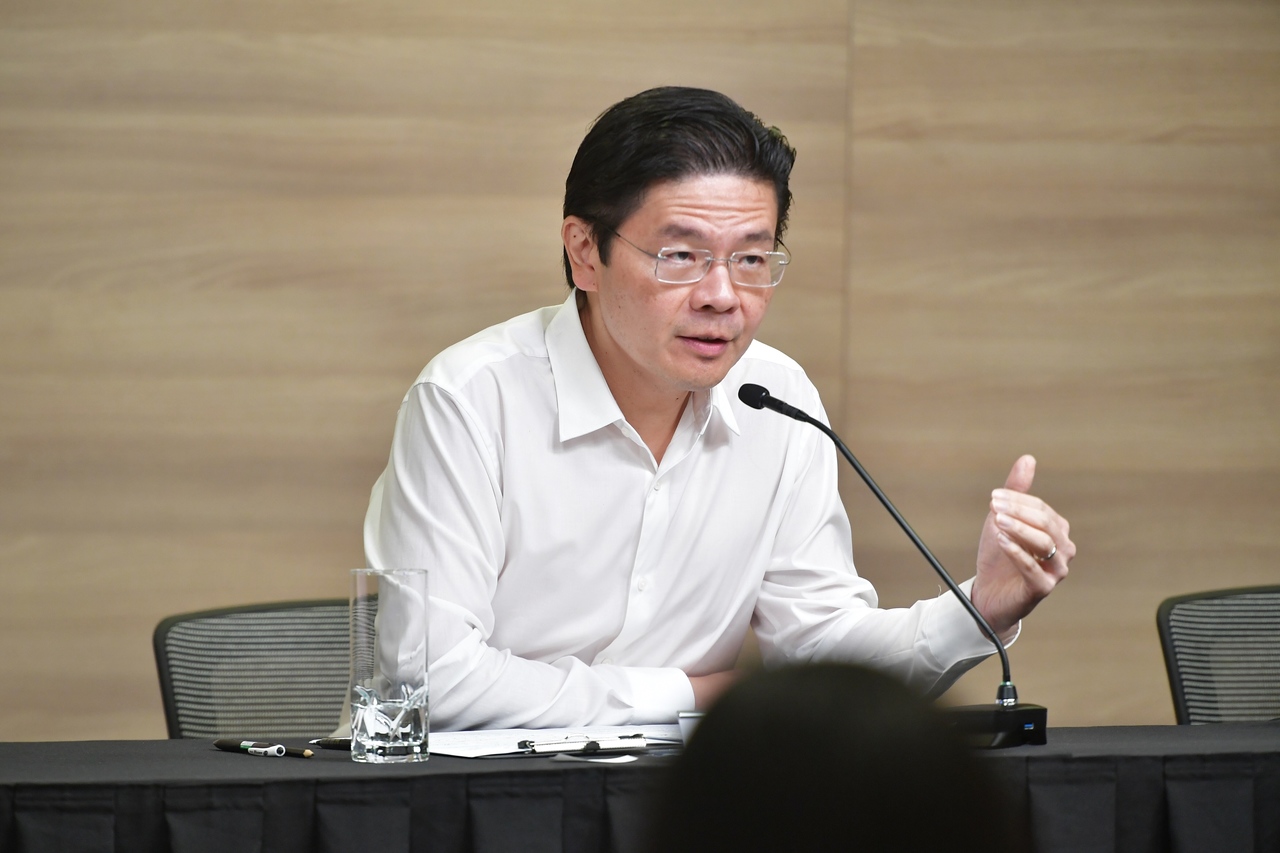Strategies to be updated as more is known of coronavirus: Lawrence Wong
Research shows its transmission is different from Sars, more like H1N1 flu: Lawrence Wong
Sign up now: Get ST's newsletters delivered to your inbox

National Development Minister Lawrence Wong speaks during a press conference on Feb 12, 2020.
ST PHOTO: DESMOND WEE
As more information on the coronavirus surfaces, Singapore will reassess and update its strategies to deal with the evolving situation, National Development Minister Lawrence Wong said yesterday.
One potential strategy if widespread community transmission happens here would be to discontinue contact tracing for every individual, he said.
"Instead, we will look at the patients who come forward," he added. The majority of those with mild symptoms can visit GPs and, with necessary precautions, will recover in due course, he said.
The more severe cases will be referred to hospitals, where they can get more specialised treatment.
Mr Wong said the Government used the same strategy to handle the H1N1 situation in 2009.
"We are not saying we are there yet. This is not our strategy today, which is still to contain the spread of the virus," he emphasised.
"That is the strategy that countries everywhere are still adopting."
Giving an update on the latest research, Mr Wong said it is now clear the transmission mechanism of the disease known as Covid-19 is different from the severe acute respiratory syndrome (Sars) which struck in 2003, and more similar to the H1N1 influenza which struck in 2009.
Mr Wong said this has been confirmed by researchers at the National Centre for Infectious Diseases (NCID), who looked at the Singapore cases and found that like influenza, the coronavirus is infectious when the symptoms are mild.
"With our mild symptoms, we sometimes let our guard down - we continue going out even though we don't really feel well, and that is how the virus transmits," he added.
He noted that the coronavirus is less severe than Sars. The mortality rate in China, and more so globally, is lower than it was for Sars.
Mr Wong, who co-chairs the Multi-Ministry Taskforce on the coronavirus, added that various studies are being done and cited one by the World Health Organisation (WHO) of 17,000 patients.
They found that 82 per cent of the patients have mild symptoms, 15 per cent have severe symptoms and 3 per cent have critical symptoms.
"It is not a mild illness at all, but certainly not of the severity of Sars," he said of Covid-19. "It is less severe; it is more infectious than Sars; it is different from Sars. That is why because of the higher degree of infection, various experts have also projected that the disease may well spread at a much faster rate - closer, more akin to H1N1."
Mr Wong also highlighted a study by Harvard University's school of public health on airline travel volume, which concluded the virus may well have spread undetected to various countries in the region, including Indonesia and Thailand.
Public health experts globally have also said the number of people infected with the coronavirus outside of China "cannot possibly remain at current levels", he added.
"It is a matter of time before you see a lot of people around the world getting the disease," he said.
Mr Wong noted how during the H1N1 and flu pandemic in 2009, 10 per cent to 20 per cent of the global population contracted the illness. "In Singapore alone, more than 400,000 people got ill from H1N1 in less than a year. We are not saying that this will happen for Covid-19. It is a different disease than H1N1, so the patterns of transmission and the number of people contracting the disease will be different," he said.
"But because the transmission patterns are similar to H1N1, we should be prepared for a scenario where you get wider transmission around the world."
He also noted while Prime Minister Lee Hsien Loong spoke about a possible change in approach should the virus become more widespread, "we are not there yet". Mr Wong said there is no widespread community transmission of the virus here or elsewhere at this stage. "All of us are doing everything we can to reduce the risk of further spread."
But new information on the virus is also being discovered every day. "As we get more of this information, we will share it with everyone so that everyone is informed and updated on the latest understanding of this virus," he said.
Mr Wong noted that four coronaviruses already form part of the common flu family, so the latest one is not unusual in that sense. "Will Covid-19 be the fifth? I don't know. The fact of the matter is, this will not be the first coronavirus to form part of the common flu that we get."
He said that what is key now is understanding the new virus, and for that, Singapore has to continue working with scientists and researchers from other countries.
"Our database is very small. We are dealing with the cases we have, but you need to look at a larger sample... to get some better sense of the patterns and the kinds of severity for different patients," he added.


